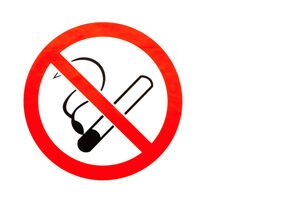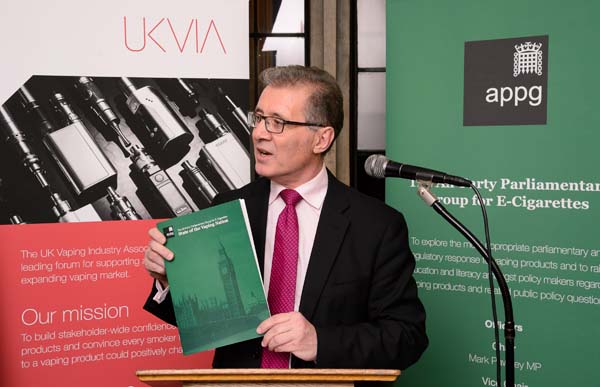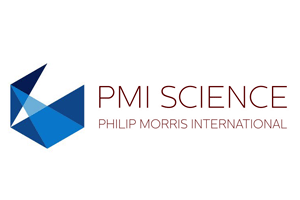The anti-smoking bill, which was introduced in the Czech Republic in May last year, has already had a positive effect on people’s health, according to a Radio Prague report citing the results of a study newly-released by the Prague-based Institute of Health Information and Data.
The comparative study, which covered the period between June 2016 and November 2017, was said to have shown that there were more than 13 percent fewer heart attacks and 16 percent fewer patients hospitalized with heart problems. It wasn’t stated, but has to be assumed, that the drop in such hospitalizations occurred after the introduction of the bill’s smoking ban.
Eva Králíková, the country’s leading anti-smoking campaigner, admitted that the figures were only preliminary, but said she believed that they ‘definitely show a positive trend’.
“The institute compared the number of hospitalizations due to acute heart attack and other cardiovascular diagnoses as well as acute asthma and the decrease was significant, especially in the age group under 60, which suggests that it happened due to smoke-free legislation, said Králíková.
There have been several attempts to turn the smoking ban into smoking restrictions, and the Lower House of Parliament is currently debating whether to pass a proposal put forward by Civic Democrat deputy Marek Benda.
The proposal envisages creating separate smoking areas in pubs with their own ventilation, and suggests that the owners of bars with an area of 80 square meters or smaller could decide whether or not to allow smoking.
But, at the same time, more than 2,000 Czech doctors have signed a petition opposing any attempts to re-open a debate on the smoking ban.
Category: Harm Reduction

Ban produces rapid results

NZ indecisive on e-cigs
New Zealand’s government-funded stop smoking services will keep losing customers if they refuse to help people who want to try vaping, according to a press note issued by Massey University and published by Scoop.
The services are said to be in a bind, however, because the legality of selling nicotine vaping products in New Zealand remains in doubt.
The previous National-led government claimed nicotine-vaping products could not be legally imported into and sold in New Zealand, but last year promised new regulations to allow the sale of nicotine e-cigarettes and e-liquids.
Last week National MP Nicky Wagner, who championed the promised law change, introduced a private member’s bill to try to get vaping back on the Labour-led government’s agenda.
Vaping researcher, Professor Marewa Glover, of Massey University’s School of Health Sciences, said that six months into the new Labour-led government’s term, all Associate Minister of Health Jenny Salesa had said on the matter was that she didn’t know what the government’s position on e-cigarettes was going to be.
“Two weeks ago, Judge Patrick Butler dismissed a Ministry of Health case against tobacco giant Philip Morris on the grounds that the IQOS Heets product could not be considered a ‘chewing’ tobacco product, which would be banned under the Smoke-Free Environments Act [SFEA],” Glover said. “His ruling could equally apply to nicotine vaping products, meaning they can be legally imported and sold in New Zealand.
“Of greater significance, he concluded that the Ministry of Health’s prosecution, which sought to restrict smokers’ access to an alternative less harmful product was the ‘opposite of what parliament sought to achieve when passing the SFEA’.”
Judge Butler’s questioning of the health authority’s attempt to undermine people’s chance to stop smoking by switching to the use of a reduced-harm product mirrors the perceptions of vapers reported in a new research paper by Trish Fraser of Global Public Health, and Glover and Dr. Penelope Truman of Massey University’s College of Health.
The full story is at: http://www.scoop.co.nz/stories/GE1804/S00011/stop-smoking-services-called-upon-to-support-vaping.htm
Vaping forum scheduled
The growth of the UK’s vaping industry will be the subject of a business-to-business conference scheduled to be held in London later this month.
The event, Going for Growth, which is being organized by the UK Vaping Industry Association (UKVIA), is due to be held on April 23, at the King’s Fund, a health charity that, among other activities, hosts health care events.
A UKVIA press note issued yesterday said the event was being organized at an exciting time for the industry, with Public Health England having reiterated its conviction that vaping represents one of the best ways to quit smoking and a positive public health opportunity.
The note said the main topics of the discussion were set to include:- The regulatory landscape, chaired by Mark Pawsey MP (pictured), chair of the All Party Parliamentary Group for E-Cigarettes;
- The role of the tobacco and pharmaceutical industries in the sector, chaired by Gareth Johnson MP;
- The future of the category in the grocery trade, chaired by Tim Phillips from ECIgIntelligence
- The public health case for e-cigarettes, chaired by the Rt Hon Norman Lamb MP, chair of the Science and Technology Select Committee and a former minister for health.
The event will include the unveiling of the world’s first smart-vaping product, developed by the event’s headline sponsor, AYR. The device is said to be unique because it is the first of its kind that can monitor its own condition and let users know when a replacement is due. It refills and recharges automatically and shows how much a user has vaped during a single session.
“This is our inaugural conference after launching UKVIA nearly two years ago,” John Dunne, UKVIA board member, was quoted as saying. “Since then, there has been significant growth which reflects the strong performance of the sector.
“This event will bring together a range of stakeholders – from manufacturers, wholesalers and retailers to industry analysts, health professionals and political figureheads – to participate in thought-provoking discussions and debate around the opportunities for and barriers to growth in the future.”
More information is available at: https://www.eventbrite.co.uk/e/ukvia-vaping-industry-forum-2018-going-for-growth-tickets-41700801219.
Film festival deadline near
The organizers of the Global Forum on Nicotine’s (GFN) first film festival have announced that the deadline for the submission of entries is April 16.
The festival, which is focused on tobacco harm reduction, will run alongside the GFN’s fifth annual conference, GFN18.
Entries must be submitted to filmfest@gfn.net.co with either a secure Vimeo or YouTube link.
The festival is being organised in association with Attention Era Media, the makers of A Billion Lives, which was shown at a previous GFN event.
Announcing the festival earlier this year, Aaron Biebert, the director of A Billion Lives, who will curate the festival, said that reversing propaganda and fear tactics would take more than a single movie. “It will take a community of educators, leaders, and influencers who are educated and excited,” he said. “A film festival focused on tobacco harm reduction will make a huge impact by inspiring filmmakers to take up the cause and help get the truth in front of the public. I am delighted to be leading this effort and believe that together we can make a difference.”
The festival will feature films up to 15 minutes long.
The makers of the films chosen for inclusion will be invited to attend GFN18 and the organisers hope to have short Q&A sessions with them following the screenings, which will take place within the conference venue and will be open to everyone attending the conference.
The conference is scheduled to be held at the Marriott Hotel, Warsaw, Poland, on June 14-16.
The festival will take place on June 15 and 16, with each of the entries being eligible for the ‘Best Picture’ award, to be decided by a jury, chaired by Biebert, who will also present the award during the closing session of the GFN.
Taiwan has e-cig ‘problem’
Taiwan’s Ministry of Health and Welfare reported Sunday new data estimating that more than 52,000 teenagers in Taiwan regularly use electronic cigarettes, according to a story in The Taiwan News citing a Central News Agency report.
A poll administered by the ministry found that e-cigarette use went from 2.0 percent among middle school students and 2.1 percent among high school students in 2013, to 3.7 percent and 4.8 percent respectively in 2015.
The ministry estimates also that there are 100,000 adult – over 18-years-old – e-cigarette smokers in Taiwan.
The ministry was quoted as saying that e-cigarettes were highly addictive and that their long-term effects were not fully understood, something, it added, that posed ‘even more of a risk to young adopters’.
The story did not explain what the e-cigarette risk was being compared with. Even so, the Ministry was said to be demanding immediate attention to this problem.
Taiwan legislators continue to discuss how to regulate and manage e-cigarettes, and even ban them; however, legislation remains pending in the Executive Yuan.
Uniting around e-cigs
Members of the UK’s lower and upper houses are due to congregate outside the Palace of Westminster today to call on Parliament to set an example by opening its doors to vaping.
The members of the two houses will be led by Mark Pawsey (pictured), MP for Rugby and chairperson of the All Party Parliamentary Group (APPG) for E-Cigarettes, in supporting the launch of VApril, a nation-wide campaign aimed at encouraging the UK’s seven million smokers to switch to vaping, which is now seen by many people as one of the best ways to break the smoking habit.
The campaign is being organized by the UK Vaping Association (UKVIA) and fronted by Christian Jessen, who is a medical doctor, television presenter and writer.
“Vaping is now recognised as one of the best ways to quit smoking and therefore presents a major opportunity to make a significant and positive impact on the public health of the nation,” Pawsey was quoted as saying in a press note put out by the UKVIA. “Yet only one in 10 people understand the relative minor risk of vaping compared to smoking.
“Even in our own Parliament vapers are treated the same as smokers, forced into outdoor areas far removed from their places of work. It is time we practice what we preach and make Parliament ‘vape friendly’. That is why we are seeking to change the rules in Parliament so we can set an example to the public and businesses across the country.”
Meanwhile, Jessen said that, according to a recent report by Public Health England (PHE), e-cigarettes might be contributing to at least 20,000 successful new quits per year – with the industry estimating this figure to be much higher.
“But as a doctor it’s disappointing to hear that an estimated 40 percent of smokers still haven’t even tried vaping.
“I’m delighted to be joining forces with the UK Vaping Industry Association to launch VApril. VApril is all about helping more smokers to make a successful and permanent switchover. I personally believe vaping has overwhelming potential to help smokers break their habit, and this is important because stopping the habit is the single most significant step that people can make to improve their health. We hope that smokers across the UK will put down their cigarettes for a month, take the VApril Challenge and give themselves the best chance of quitting smoking for good.”
Smokers are being encouraged to take the VApril challenge across the UK by dropping into vaping masterclasses being provided by specialist vaping stores during April. They will receive a free guide – Vape to Break the Smoking Habit – to help them transition from smoking to vaping and give them the best chance of a successful quit.
More information is available at: www.vapril.org.
FDA moving on e-cigs
The commissioner of the US Food and Drug Administration Scott Gottlieb has said that the agency is considering whether it could bring electronic cigarettes into the over-the-counter (OTC) regulatory pathway, according to a CNBC report relayed by the TMA.
Gottlieb said the OTC pathway would give the agency more tools to look at both safety and benefit, study whether or not an e-cigarette promoted smoking cessation, and study toxicity and the way it affects the lung.
This move was said to be part of the sweeping plan to overhaul tobacco regulation that the Commissioner announced in July.
“At the very time I am trying to take nicotine out of combustible tobacco, I don’t want to be sweeping the market of products that provide an alternative to smokers who want to get access to nicotine,” Gottlieb said.
The idea flows from the FDA’s continuum of risk policy that recognizes that conventional cigarettes are the most harmful and other nicotine products are potentially less risky.
HEETS-ban case dismissed
A Ministry of Health claim that a heated-tobacco product was banned under New Zealand law has been dismissed by a judge sitting alone in the District Court of Wellington.
The case, brought against Philip Morris New Zealand (PMNZ) in respect of HEETS, the consumable item of PM’s IQOS system, claimed that the product was banned under the Smoke-Free Environment Act, which bans tobacco products used for chewing or any other oral use (other than smoking).
But Judge Patrick Butler found that HEETS were not caught within the ambit of s 29 (2) of the Act and dismissed the charge.
While welcoming the decision, PMNZ’s general manager Jason Erickson said the case highlighted the need for urgent reform of regulations surrounding e-cigarettes and other smokeless tobacco products.
“To achieve the Smokefree 2025 goal, men and women who smoke in New Zealand need freely available information and access to a range of better alternatives to cigarettes, including nicotine-containing electronic cigarettes and smokeless tobacco products such as HEETS,” he said.
More evidence on vapor
New data presented at the Society of Toxicology Annual Meeting (SOT) have demonstrated the potential risk reduction offered by switching from conventional cigarettes to two different heat-not-burn tobacco products and e-cigarettes.
A PMI Science press note issued on Wednesday said that a range of studies had investigated the toxicological impact of Philip Morris International’s Tobacco Heating System 2.2 (THS 2.2), Carbon Heated Tobacco Product 1.2 (CHTP 1.2) and prototype e-cigarette products in the context of respiratory disease, cardiovascular disease, and lung cancer using several different approaches. In each case, the aerosols produced by the alternative products were said to have resulted in significantly reduced levels of biological impact as compared to cigarette smoke (CS).
‘One six-month, multi-arm exposure study compared the effects of CS with those of the aerosol from the two heat-not-burn tobacco products THS 2.2 and CHTP 1.2 using a mouse model,’ the note said. ‘In both THS 2.2 and CHTP 1.2, tobacco is heated rather than burned, resulting in significantly reduced levels of harmful chemicals emitted and inhaled as compared with CS,’ the note said.
‘Through a systems toxicology approach, combining physiological, histological, and omics [various biology disciplines] endpoints, the study found that exposure to THS 2.2 and CHTP 1.2 aerosols had minimal adverse respiratory and cardiovascular effects in comparison to exposure to CS. The findings are in line with a previous assessment of THS 2.2, demonstrating reproducibility of the results obtained. In addition, both cessation and switching to CHTP 1.2 aerosol exposure after three months exposure to CS reversed inflammatory lung responses, halted the progression of aortic plaque growth and reduced the perturbations of biological pathways in heart tissue, to levels typically seen following exposure to fresh air alone.’
PMI Science said that another study presented at SOT had assessed lung inflammation, emphysema and the underlying molecular changes typically associated with lung cancer following up to 18 months of exposure to either CS or THS 2.2 aerosol. ‘The study used a combination of traditional toxicology endpoints as well as systems toxicology techniques including histological, transcriptomic, and proteomic analysis of the lungs,’ the note said. ‘In all endpoints, the biological impact of THS 2.2 aerosol was significantly lower than that of CS.’
Meanwhile, the company said that, in line with the principles of 21st century toxicology, PMI was developing also novel in vitro methods for toxicity testing using human cells. ‘Such models have the potential to reduce the necessity for animal testing and offer more cost-efficient and timely results, as well as a detailed understanding of the biological processes underlying toxicity,’ it said.
‘In collaboration with the Institute for In Vitro Sciences (IIVS), one study presented at the SOT evaluated the performance and reproducibility of three new in vitro assays. Six laboratories conducted comparison of the assays and found that these non-animal test systems may provide consistent human-relevant data corresponding to key events involved in respiratory disease. A further in vitro methodology using human bronchial epithelial cells was used in a study assessing the effects of THS 2.2 aerosol and CS.’
“The multi-lab comparison of these non-animal systems paves the way for more robust and meaningful strategies for toxicity testing,” said Dr. Holger Behrsing, principal scientist, IIVS. “They allow us to generate human-relevant data that will be of interest not just to industry and research scientists, but also to regulatory bodies. In order to develop these assays and ensure they reach their fullest potential, collaboration is key. Working with PMI and a range of different laboratories has allowed us to leverage expertise across the field and demonstrate the reproducibility of our findings. In the spirit of open science, we hope that this will open the door to further collaborations in the investigation, development, and validation of novel in vitro systems.”
In the assessment of three prototype e-cigarettes, biological changes following three-week’s exposure to the either the e-cigarette aerosols or CS were assessed using traditional and systems toxicology endpoints. CS exposure was found to induce biological responses associated with smoking-related diseases in the respiratory tract, while e-cigarette aerosol exposures, even at higher levels of nicotine delivery, resulted in substantially reduced molecular and microscopic changes. Two additional e-cigarette studies assessed the biological effects of flavor compounds typically added to e-cigarette liquids, demonstrating the potential to establish a scientifically substantiated list of minimally-toxic flavor ingredients.
PMI said it was leading a full-scale effort to ensure that heat-not-burn tobacco products and e-cigarettes ultimately replaced cigarettes.
Further information on PMI’s Reduced-Risk Product development and assessment program can be found at www.pmiscience.com.
Tobacco ≠ cigarettes
NZ Smokeless Tobacco Co (NZSTC) has said it is appalled by the lack of ideas being put forward by the New Zealand government to fast track the race for ‘Smoke-free 2025’.
“Our organisation has approached both health ministers regarding Nationals New Pathway to Smokeless Alternatives and Nicotine Delivery Products and their replies were, ‘I am still considering the proposals from the previous government’ which quite frankly is not good enough!,” said Miles Illemann, co-founder of NZSTC.
In a press note, NZSTC acknowledged that New Zealand was suffering a crime wave underpinned by the cigarette black market, but, it added, having organizations such as Action on Smoking and Health and British American Tobacco arguing over spilt milk was not helping.
‘We need change and that’s what New Zealanders want, like the NZDF [New Zealand Defence Force] going smoke-free in 2020 …,’ the note said.
‘NZSTC wants to clear up a few things when talking about tobacco. Firstly, it is cigarettes causing the deaths. Yes, they are tobacco, but it is the way … [in] which it is consumed that is the problem. If we look at the “Swedish Experience” regarding oral tobacco like snus, studies show that it is the most effective way to quit smoking with no risk of cancer. Therefore, cigarettes should be the word of choice used to attack the problem because if we are wanting this government to change, we need to remove the stigma that cigarettes have on tobacco.
‘If we look at Norway for example, we see that by snus being readily available to smokers, the ability to change the statistics around to meet our goals in 2025 is quite possible. It’s not going to happen from plain packaging or any other way except for healthy alternatives to nicotine through a harm reduction strategy.
‘Let’s remember that we are living in a democracy, people have the freedom of choice. We shouldn’t be thinking about taking things away from the people but giving them more healthy options like we have seen in the past with e-cigarettes.’








